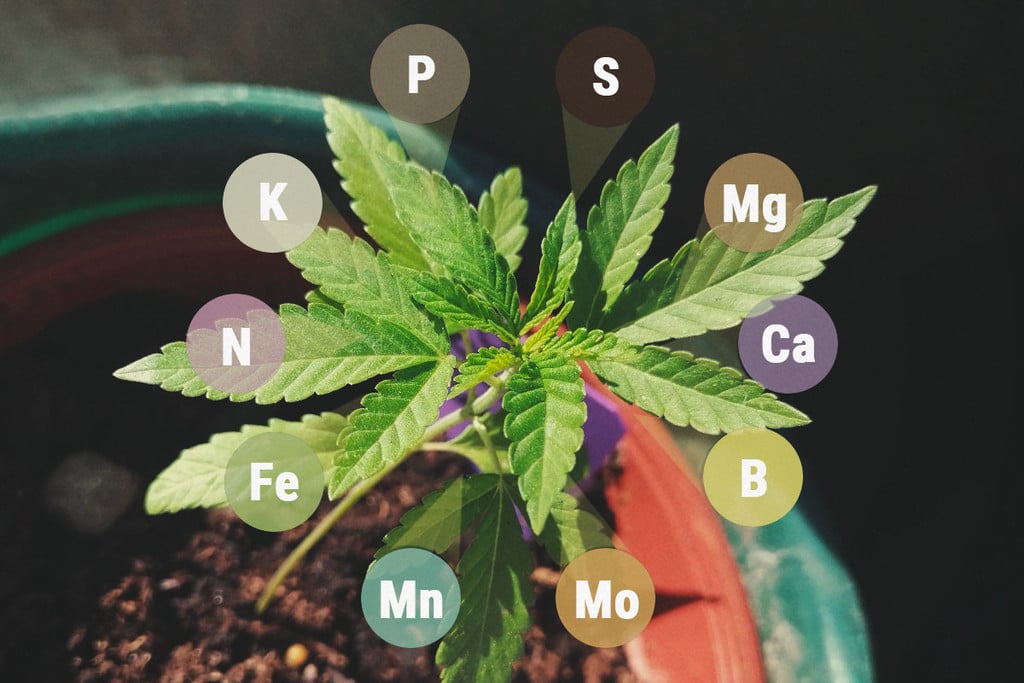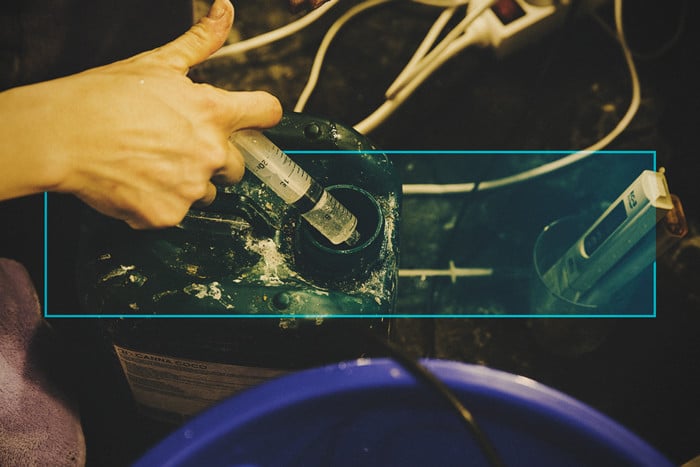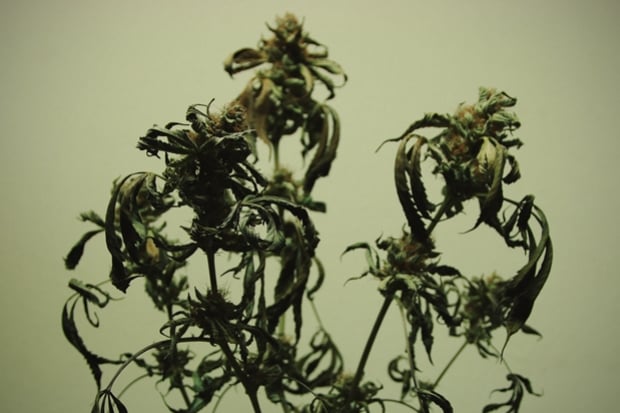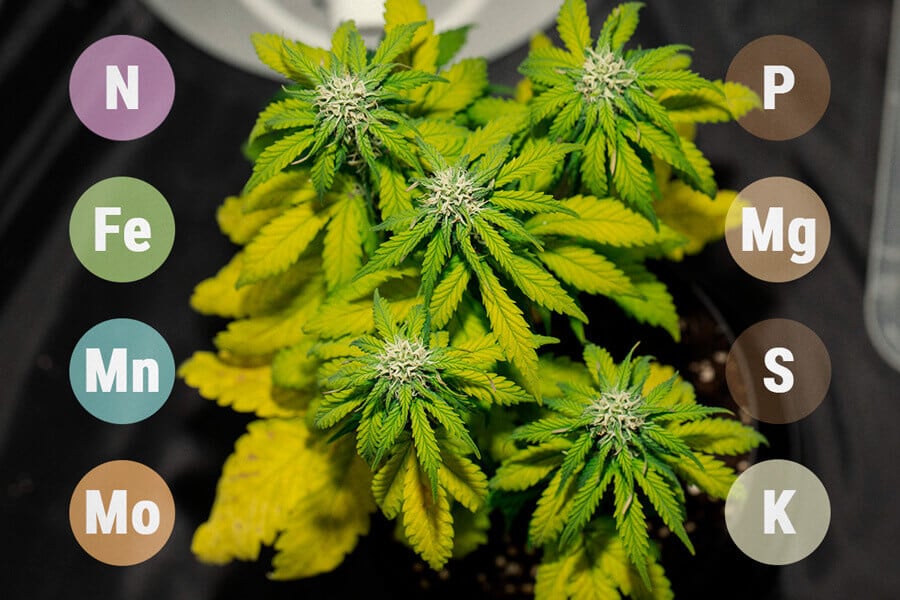 Weed Grow Guide by Royal Queen Seeds
Weed Grow Guide by Royal Queen Seeds
- Growing weed step by step
- Marijuana growing basics
- Choosing your seeds
- How to germinate seeds
- The marijuana vegetative stage
- The marijuana flowering stage
- Harvesting marijuana
- Trimming, drying, and curing
- Choosing pots and soil
-
Growing indoors
- A Complete Overview Of Growing Cannabis Indoors
- Cannabis Cultivation Tips: How To Set Up Indoor Grow Lights
- How Many Cannabis Plants Can You Grow Per Square Metre?
- Indoor Cannabis Growing: Relative Humidity and Temperatures
- Hydroponics Cannabis Growing Guide (with diagrams)
- Cannabis Micro Growing: Growing Great Weed in Tiny Spaces
- Growing outdoors
- How to grow autoflowering marijuana
- Marijuana nutrients and pH
- Marijuana troubleshooting: Nutrients
-
Marijuana troubleshooting: Growing
- Cannabis Seed Germination — Troubleshooting Guide
- How to Deal With Pythium (Root Rot) in Cannabis Plants
- Slow Cannabis Plant Growth And What You Can Do About It
- How to Deal With Leggy Cannabis Seedlings
- Watering Your Cannabis: How to Fix Overwatering and Underwatering
- Understanding Male, Female, And Hermaphrodite Cannabis
- Identifying and Treating Common Cannabis Ailments
- How To Revive a Sick Cannabis Plant
- How to Avoid Moldy Marijuana During Drying and Curing
- How to Prevent and Treat Dry and Crispy Cannabis Leaves
- What Cannabis Leaves Can Tell You
- Causes and Solutions for Yellow Cannabis Leaves
-
Marijuana Strains Grow Report
- HulkBerry Automatic Grow Report
- Blue Cheese Auto Grow Report
- Purple Punch Automatic Strain Grow Report
- Triple G Automatic Grow Report
- Do-Si-Dos Automatic Grow Report
- Green Gelato Automatic Grow Report
- Haze Berry Automatic Grow Report
- Purple Queen Automatic Grow Report
- Cookies Gelato Automatic Grow Report
- Sherbet Queen Automatic Grow Report
- Sweet Skunk Automatic Grow Report
- Medusa F1 Grow Report
- Marijuana plant training
-
Marijuana growing tips
- The Cannabis Plant Anatomy
- How to preserve seeds - RQS USA
- How Much Sunlight Do Outdoor Cannabis Plants Need To Grow?
- How to Control and Prevent Stretching in Cannabis Plants
- My Cannabis Plants Are Growing Too Tall: What Should I Do?
- Should You Worry About Purple Or Red Cannabis Stems?
- What To Do When Your Indoor Cannabis Won’t Flower
- How To Protect Your Cannabis Plants From Heat Stress
- How To Tell If Your Female Cannabis Plant Has Been Pollinated
- Growing Medical Marijuana
- Bud Washing: How to Clean Your Weed
- Understanding Cannabis Yield per Plant
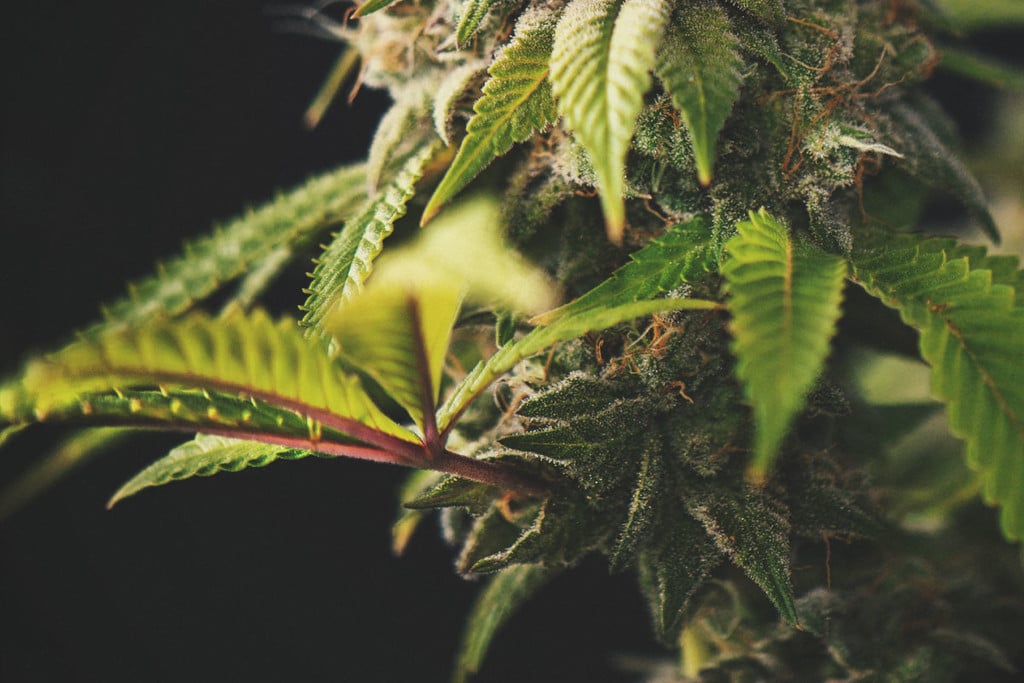
Should You Worry About Purple Or Red Cannabis Stems?
Red or purple stems in cannabis can be a sign of stress, nutrient deficiency, pathogens, or simply genetics. Keep reading to learn when to be concerned about red stems, and when not to.
Contents:
Red or purple stems caused by genetics or light
You might be alarmed the first time you spot red or purple stems on your cannabis plants. But you don’t always need to be. There are countless strains of cannabis on the planet, and some of them are capable of developing incredible pigmentation.
Purple strains with very dark foliage, for example, often develop purple stems too, especially if you grow them in slightly cooler temperatures. As long as your plants look otherwise healthy, there’s usually no reason to worry.
Other than genetics, another major cause behind discolored stems is strong light exposure. If you use training methods like LST or defoliation, you may notice the exposed stems of your plants turning red, pink, or purple over time. This is completely normal and shouldn’t be cause for concern as long as your lights are sufficiently distanced and your plants look otherwise healthy.
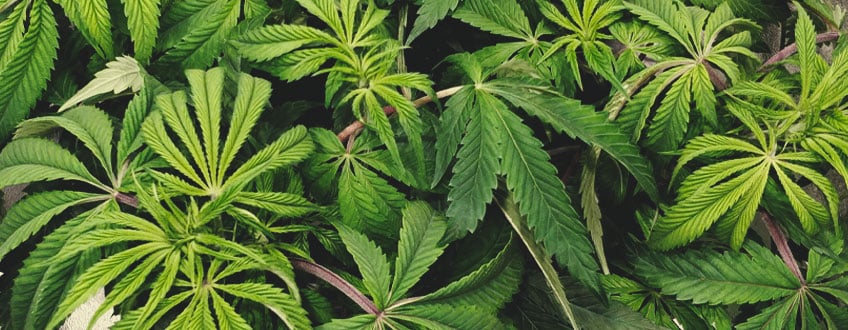
Red or purple stems caused by stress, nutrient deficiency, or the environment
Unfortunately, red or purple stems in cannabis can also be a sign of stress. When this is the case, your plants will usually experience some other symptoms that can help you narrow down the root cause of the problem.
1. Pathogens
Some fungi, such as Fusarium or Botrytis, can affect the color of your plants' stems and foliage. Fusarium affects seedlings, attacking their stems and eventually causing them to topple over or "damp off". It can sometimes make stems appear dark brown, red, or slightly purple. Botrytis, on the other hand, affects larger plants and forms a characteristic brown line along the affected stems and branches, robbing them of nutrients and causing them to die.
Both Fusarium and Botrytis can spread from one plant to another and should be taken care of as soon as possible. Check out our previous posts on Fusarium and cannabis molds for more information on how to deal with these deadly pathogens.
Wondering how to prevent cannabis stress? Our Growing Guide gives you essential tips on keeping your plants healthy and strong.
Free RQS
Grow Guide!

2. Nutrient deficiency
Nutrient deficiencies cause a wide range of symptoms, including yellowing/drying new and old foliage, and discolored stems and leaves. In particular, some of the early signs of a phosphorous deficiency include red and purple stems, followed by brown, dried out leaves. Magnesium deficiencies, on the other hand, tend to cause petioles (the stalks attaching a leaf to a stem) to turn red.
If you’re worried your plants might be dealing with a nutrient deficiency, check out this post for pictures, descriptions, and easy-to-follow steps on how to identify and cure every cannabis nutrient deficiency.
Remember, nutrient deficiencies don’t just cause discolored stems; they also cause signs of stunted growth, damaged foliage, and more. Make sure to identify the type of deficiency affecting your plants using our guide and rectify it as soon as possible.
3. A note on pH
Getting the pH of your soil and nutrient solution right is essential for healthy plants. Unfortunately, it’s also something a lot of growers struggle with.
Cannabis likes slightly acidic soil (we recommend keeping it at 6.5 for best results). If your soil is either too acidic or too alkaline, your plants can lose healthy foliage and develop nutrient deficiencies as they struggle to uptake nutrients from your fertilisers. If your plants have red or purple stems and other signs of a nutrient issue, make sure to check your pH levels.
For a clear picture of the pH of your soil, we recommend investing in pH and conductivity testers. These tools provide accurate readings of your soil pH as well as the electrical conductivity of your nutrients, meaning you’ll be able to see just how well your plants are absorbing their fertiliser.
4. Temperature fluctuations
Abrupt changes in temperature can often cause changes in pigmentation in cannabis plants. Cool nighttime temperatures in particular can lead your plants to develop dark red or purple foliage and stems. This is even more common in purple strains; in fact, growers often expose purple strains to cooler nighttime temperatures on purpose to really highlight the purple gene.
If your plants turn red or purple after a particularly cold night, pay close attention to them over the following days. If they continue to grow normally, then there’s nothing to worry about. If, however, you notice slowed growth or other signs of stress, bring up the temperature in your grow room (or consider moving your plants indoors if you’re outdoors).
5. Stress
Cannabis plants react to stress in myriad ways. Sometimes, discolored stems can be a sign of transplant shock, heat stress, overwatering, or even a bug infestation. That’s why, if you spot purple or red stems, it’s important you pay close attention to identify the root cause of the discoloration.
Below, you’ll find a checklist of potential stressors that might be causing your plants to develop red or purple stems:
🌱 Root shock
Transplanting comes as a big shock to the root system. If your plants develop red or purple stems after being transplanted, a good dose of TLC should help them recover quickly.
🕷 Pests or plagues
Some cannabis strains are more prone to pests and plagues than others. If your plants have discolored stems and also suffer from damaged foliage, stunted growth, and signs of mildew, gnats, or spiders, you’ll need to act quickly. Check out this post on common cannabis ailments for more info on how to spot and treat common cannabis pests.
🌡Temperature or humidity issues
If the temperature or humidity levels in your grow room feel off, that may be part of your problem. Adjust temperature/humidity if you suspect they could be stressing your plant.
💡 Light/heat stress
While cannabis loves warm weather and plenty of sun, too much heat or light can damage it. If your cannabis plants develop burnt or yellow foliage, bleaching, or curled leaves a few days after you first notice their discolored stems, they might be dealing with light or heat stress. Be quick to address these issues, as they can have a devastating effect on your plants and greatly reduce the size and quality of your yield.
Getting to the bottom of red and purple cannabis stems
As we saw earlier, red or purple cannabis stems aren’t necessarily a cause for concern. If your plants suddenly develop discolored stems, remember to monitor them closely and look out for other symptoms that the discoloration isn’t caused by genetics or light exposure. Also, visit the growing section of our blog for more detailed articles on how to grow cannabis, deal with nutrient deficiencies, pests, heat stress, and more.
 Grow Guide Topic Finder
Grow Guide Topic Finder
- Growing weed step by step
- Marijuana growing basics
- Choosing your seeds
- How to germinate seeds
- The marijuana vegetative stage
- The marijuana flowering stage
- Harvesting marijuana
- Trimming, drying, and curing
- Choosing pots and soil
-
Growing indoors
- A Complete Overview Of Growing Cannabis Indoors
- Cannabis Cultivation Tips: How To Set Up Indoor Grow Lights
- How Many Cannabis Plants Can You Grow Per Square Metre?
- Indoor Cannabis Growing: Relative Humidity and Temperatures
- Hydroponics Cannabis Growing Guide (with diagrams)
- Cannabis Micro Growing: Growing Great Weed in Tiny Spaces
- Growing outdoors
- How to grow autoflowering marijuana
- Marijuana nutrients and pH
- Marijuana troubleshooting: Nutrients
-
Marijuana troubleshooting: Growing
- Cannabis Seed Germination — Troubleshooting Guide
- How to Deal With Pythium (Root Rot) in Cannabis Plants
- Slow Cannabis Plant Growth And What You Can Do About It
- How to Deal With Leggy Cannabis Seedlings
- Watering Your Cannabis: How to Fix Overwatering and Underwatering
- Understanding Male, Female, And Hermaphrodite Cannabis
- Identifying and Treating Common Cannabis Ailments
- How To Revive a Sick Cannabis Plant
- How to Avoid Moldy Marijuana During Drying and Curing
- How to Prevent and Treat Dry and Crispy Cannabis Leaves
- What Cannabis Leaves Can Tell You
- Causes and Solutions for Yellow Cannabis Leaves
-
Marijuana Strains Grow Report
- HulkBerry Automatic Grow Report
- Blue Cheese Auto Grow Report
- Purple Punch Automatic Strain Grow Report
- Triple G Automatic Grow Report
- Do-Si-Dos Automatic Grow Report
- Green Gelato Automatic Grow Report
- Haze Berry Automatic Grow Report
- Purple Queen Automatic Grow Report
- Cookies Gelato Automatic Grow Report
- Sherbet Queen Automatic Grow Report
- Sweet Skunk Automatic Grow Report
- Medusa F1 Grow Report
- Marijuana plant training
-
Marijuana growing tips
- The Cannabis Plant Anatomy
- How to preserve seeds - RQS USA
- How Much Sunlight Do Outdoor Cannabis Plants Need To Grow?
- How to Control and Prevent Stretching in Cannabis Plants
- My Cannabis Plants Are Growing Too Tall: What Should I Do?
- Should You Worry About Purple Or Red Cannabis Stems?
- What To Do When Your Indoor Cannabis Won’t Flower
- How To Protect Your Cannabis Plants From Heat Stress
- How To Tell If Your Female Cannabis Plant Has Been Pollinated
- Growing Medical Marijuana
- Bud Washing: How to Clean Your Weed
- Understanding Cannabis Yield per Plant



























